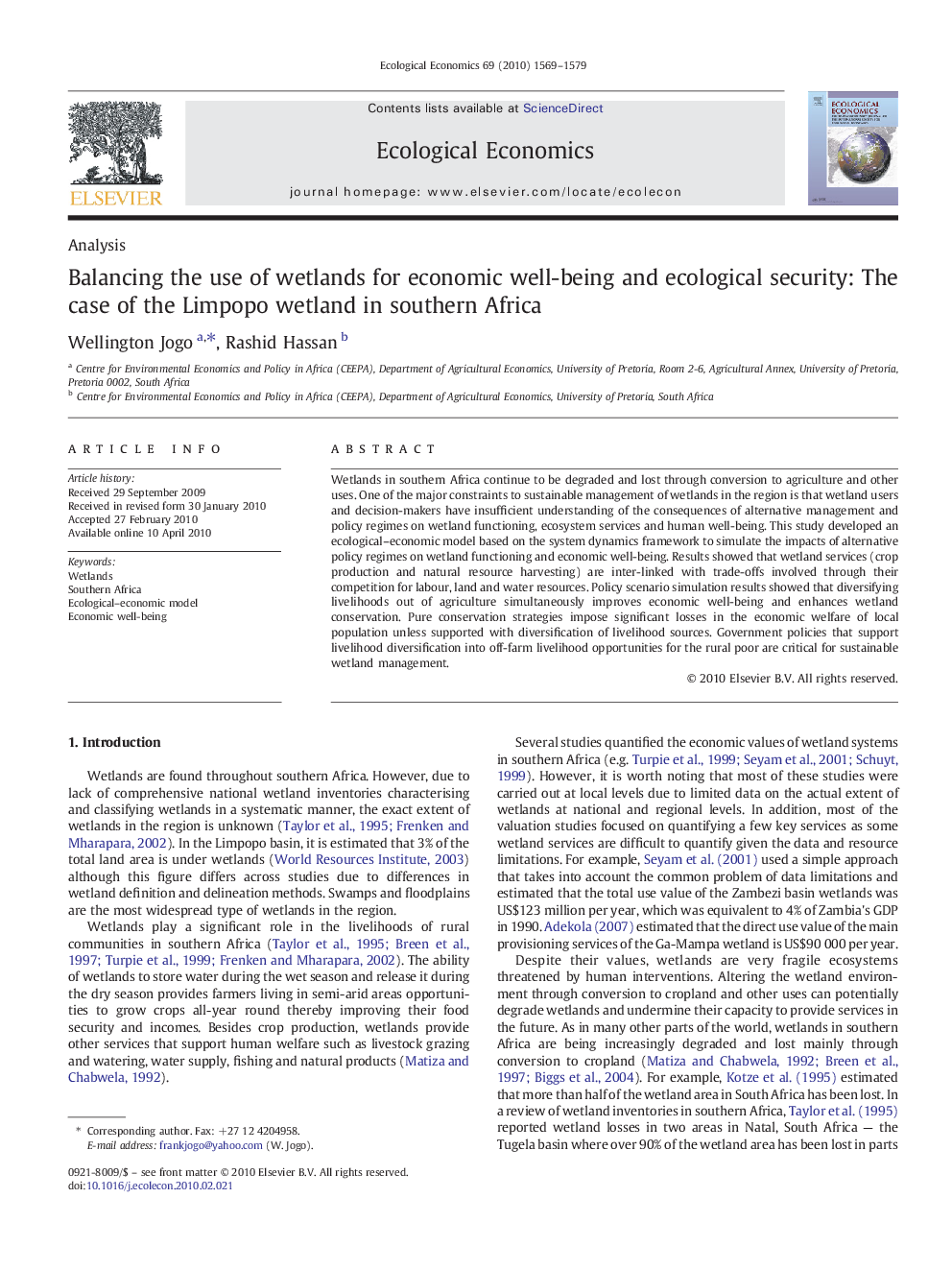| Article ID | Journal | Published Year | Pages | File Type |
|---|---|---|---|---|
| 5051077 | Ecological Economics | 2010 | 11 Pages |
Abstract
Wetlands in southern Africa continue to be degraded and lost through conversion to agriculture and other uses. One of the major constraints to sustainable management of wetlands in the region is that wetland users and decision-makers have insufficient understanding of the consequences of alternative management and policy regimes on wetland functioning, ecosystem services and human well-being. This study developed an ecological-economic model based on the system dynamics framework to simulate the impacts of alternative policy regimes on wetland functioning and economic well-being. Results showed that wetland services (crop production and natural resource harvesting) are inter-linked with trade-offs involved through their competition for labour, land and water resources. Policy scenario simulation results showed that diversifying livelihoods out of agriculture simultaneously improves economic well-being and enhances wetland conservation. Pure conservation strategies impose significant losses in the economic welfare of local population unless supported with diversification of livelihood sources. Government policies that support livelihood diversification into off-farm livelihood opportunities for the rural poor are critical for sustainable wetland management.
Related Topics
Life Sciences
Agricultural and Biological Sciences
Ecology, Evolution, Behavior and Systematics
Authors
Wellington Jogo, Rashid Hassan,
